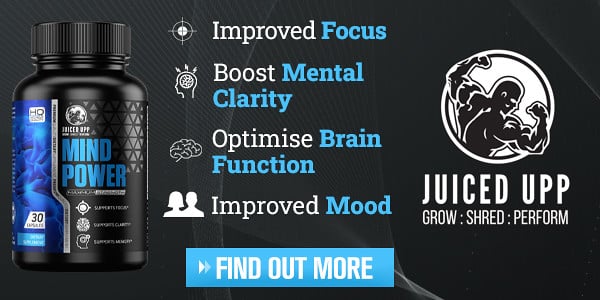Table of Contents
Huperzine A is a dietary supplement extracted from a Chinese plant called Huperzia Serrata or Chinese club moss. Chinese club moss is a traditional medicine used to reduce inflammation, sharpen memory, and deliver other health benefits.
It captured the attention of Alzheimer’s research scientists who reported that the compound could reverse the cognitive decline issues associated with neurodegenerative disorders like dementia. According to some preliminary data, Huperzine A can inhibit the activities of cholinesterase, an enzyme that breaks down the vital neurotransmitter acetylcholine. By combating this enzyme, it effectively promotes the actions of acetylcholine to improve memory, attention, and learning ability.

There have also been reports that Huperzine A could be an effective memory booster in healthy individuals. That’s why the drug is also sold as a nootropic. However, the scientific evidence backing its effectiveness for this purpose is very limited.
It is also known by the names HupA, Huperzine, Selagine, and Huperzina A.
Uses and Benefits of Huperzine A
According to the limited scientific data available at the moment, it may be beneficial for:
- Alzheimer’s Disease
Huperzine A is believed to be a potential treatment for the symptoms of Alzheimer’s disease and other forms of dementia. Other than treating the condition, it may also help reduce the risk of developing Alzheimer’s in people who are already at a predisposed risk.
Huperzine A might be useful for this purpose due to its impact on the learning neurotransmitter acetylcholine. The compound reduces the activities of the chemical Cholinesterase. This increases the levels of acetylcholine hence improving key cognitive functions. In doing so, Huperzine A reverses Alzheimer's symptoms such as memory loss, poor concentration, and learning impairment.
The biggest challenge with Huperzine A is the lack of large-scale human trials to support its efficacy. There have been a few human studies involving subjects with Alzheimer’s disease, but these studies are not of the highest quality. For instance, this trial involving 454 Alzheimer’s patients reported improved cognitive functions and functional performance without any adverse events, but the study had several shortcomings. In the end, the researchers recommended more rigorous and randomized trials for more reliable results.
A few studies have also produced contradicting results showing the product did not have a significant impact on the cognitive functions of Alzheimer's patients.
It’s clear that the only way to know how beneficial Huperzine A might be for Alzheimer’s patients is through thorough clinical trials. They will also help us understand the safety profile of the drug better. Hopefully, we’ll see more of these trials in the near future.
- Memory Enhancement
Huperzine A may boost memory and cognition in healthy individuals, including students and professionals. It can also promote normal cognitive functions in aging people, a population where age-related cognitive decline is very common.
Of course, these claims stem from the reported Huperzine A’s mechanism of action that involves increasing the learning neurotransmitter acetylcholine. The only problem is that there haven’t been many clinical trials investigating this effect. Only one trial has reported the memory enhancement abilities of Huperzine A in healthy individuals. The trial had a very small sample size of just 34 adolescent students.
In addition to the above uses, Huperzine A is also purported to be beneficial for:
- Treating psychiatric disorders like depression and Schizophrenia
- Increasing mental alertness and energy
- Improving neuroprotection
- Fighting cocaine use disorder
- Fighting glutamate toxicity
- Treating myasthenia gravis. An autoimmune disorder causing rapid fatigue and weakness of muscles
Side Effects
Huperzine A is generally safe and well-tolerated when taken appropriately.
In some rare cases, this nootropic can produce side effects like blurred vision, diarrhea, vomiting, constipation, dry mouth, sweating, nausea, slurred speech, restlessness, dizziness, high blood pressure, slowed heart rate, sleep disturbance, and loss of appetite. The safety profile of Huperzine A is not known 100%, but reports show the risk of adverse reactions increase when the drug is abused. Long-term effects of the drug are also not known.
As a safety precaution, pregnant and breastfeeding women should avoid this drug. Individuals with existing medical conditions like seizure disorder, stomach ulcers, and cardiovascular diseases are also advised against using Huperzine A. In summary, do not use this drug without a doctor's approval if you have any medical condition.
Dosage
Huperzine A is usually administered orally, but you can also use it through injections. There are no official dosages that are guaranteed to be safe and effective for everyone. Based on anecdotal experiences and a few of the available studies, a dosage of around 100mcg taken twice daily is said to be most effective for memory enhancement. For Alzheimer’s disease, dosages of between 300mcg and 500mcg taken twice per day are recommended.
To treat Myasthenia Gravis, Huperzine A is administered through intramuscular injections. The dosages used here are typically low. You should only use Huperzine A for this purpose with a doctor’s permission and supervision.
Final Thoughts
This product is a drug with so much potential but not enough clinical data backing it. For that reason, we'll encourage you to speak to a licensed physician about a possible alternative, especially if you are looking to treat a medical condition like Alzheimer's disease or Myasthenia Gravis.
For the people who want to use it for its potential nootropic benefits, make sure to take it in the right dosages and for short-term. Stop using the drug if you experience any severe side effects.
References
- https://www.alzforum.org/therapeutics/huperzine
- https://www.mayoclinic.org/diseases-conditions/alzheimers-disease/expert-answers/huperzine-a/faq-20058259
- https://www.sciencedirect.com/topics/neuroscience/huperzine-a














